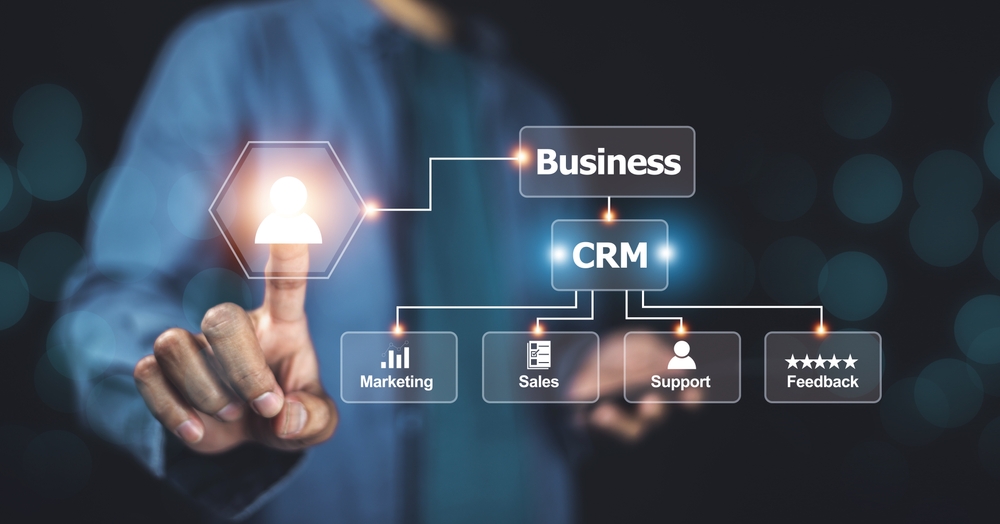Table of Contents
Introduction
When businesses seek to optimize their customer relationships and marketing efforts, they often find themselves comparing marketing software vs CRM systems. While these tools may seem similar on the surface, understanding their distinct purposes, features, and benefits is crucial for making the right choice for your organization.
What is Marketing Software?
Marketing software refers to digital tools and platforms designed specifically to automate, manage, and optimize marketing campaigns across multiple channels. These solutions focus primarily on attracting new prospects, nurturing leads, and converting them into customers through targeted marketing activities.
Modern marketing software encompasses a wide range of functionalities including email marketing automation, social media management, content creation tools, search engine optimization features, and campaign analytics. The primary goal of marketing software is to streamline marketing processes, improve campaign effectiveness, and generate qualified leads for the sales team.
Understanding CRM Systems
Customer Relationship Management (CRM) systems are comprehensive platforms designed to manage all aspects of customer interactions throughout the entire customer lifecycle. Unlike marketing software, CRM systems focus on building and maintaining long-term relationships with existing customers while also managing the sales process from lead to close.
CRM platforms store detailed customer information, track communication history, manage sales pipelines, and provide insights into customer behavior patterns. These systems serve as a central hub for sales teams, customer service representatives, and management to access complete customer profiles and interaction histories.
Core Differences Between Marketing Software vs CRM
The fundamental distinction in the marketing software vs CRM debate lies in their primary objectives and target users. Marketing software concentrates on the front end of the customer journey, focusing on awareness, interest, and lead generation activities. These tools excel at creating personalized marketing campaigns, automating email sequences, and tracking marketing performance metrics.
CRM systems, conversely, emphasize the middle and back end of the customer journey, focusing on sales conversion, customer retention, and relationship management. While marketing software aims to cast a wide net to attract potential customers, CRM systems work to deepen relationships with existing prospects and customers.
Functionality Comparison
When examining marketing software vs CRM functionality, marketing platforms typically offer advanced campaign management features, A/B testing capabilities, lead scoring mechanisms, and detailed marketing analytics. These tools integrate with various marketing channels including social media platforms, email providers, and advertising networks to create cohesive marketing campaigns.
CRM systems provide robust contact management, sales pipeline tracking, opportunity management, and customer service tools. They offer detailed reporting on sales performance, customer lifetime value, and relationship metrics that help businesses understand their customer base more comprehensively.
Integration Capabilities
In the modern business landscape, the marketing software vs CRM discussion often centers around integration possibilities. Many organizations discover that these systems work best when connected, allowing marketing teams to pass qualified leads seamlessly to sales teams while maintaining complete visibility into the customer journey.
Advanced marketing software platforms often include basic CRM functionality, while comprehensive CRM systems may incorporate marketing automation features. However, specialized tools in each category typically offer more robust capabilities within their respective domains.
Target Audience and Use Cases
The choice between marketing software vs CRM often depends on your organization’s structure and priorities. Marketing software serves marketing teams, content creators, and growth professionals who need to execute complex campaigns, nurture leads, and demonstrate marketing ROI through detailed analytics and reporting.
CRM systems primarily serve sales teams, customer service representatives, and account managers who need complete customer visibility, sales process management, and relationship tracking capabilities. These platforms excel in environments where personal relationships and ongoing customer management drive business success.
Cost Considerations
Budget implications play a significant role in the marketing software vs CRM decision. Marketing software pricing typically scales based on the number of contacts, email sends, or active campaigns, making it accessible for smaller businesses starting their marketing automation journey.
CRM pricing models usually depend on the number of users and feature sets required, with enterprise-level solutions offering extensive customization and integration options. The total cost of ownership should include implementation, training, and ongoing maintenance expenses for both types of systems.
Implementation and Adoption
The complexity of implementing marketing software vs CRM varies significantly based on organizational needs and existing technology infrastructure. Marketing software implementation often focuses on campaign setup, template creation, and integration with existing marketing channels, typically requiring marketing expertise and creative resources.
CRM implementation involves data migration, process mapping, user training, and integration with existing business systems. This process often requires more extensive change management and cross-departmental coordination to ensure successful adoption across sales and customer service teams.
Future Trends and Evolution
The landscape of marketing software vs CRM continues evolving as vendors incorporate artificial intelligence, machine learning, and predictive analytics into their platforms. Modern solutions increasingly blur the lines between marketing and sales tools, offering integrated platforms that serve both functions effectively.
Customer data platforms and unified customer experience solutions represent the next evolution in this space, combining the best aspects of marketing software and CRM systems into comprehensive customer management ecosystems.
Making the Right Choice for Your Business
Determining the best fit in the marketing software vs CRM comparison requires careful evaluation of your business objectives, team structure, and growth stage. Companies focused on rapid lead generation and marketing campaign optimization may benefit more from specialized marketing software, while organizations prioritizing sales process management and customer relationship development might find CRM systems more valuable.
Conclusion
Consider your current technology stack, integration requirements, and long-term business goals when making this decision. Many successful organizations ultimately implement both types of systems, creating a comprehensive customer management ecosystem that supports both marketing and sales objectives effectively. The marketing software vs CRM decision represents a significant investment in your organization’s growth capabilities, and understanding these key differences ensures you select the solution that best aligns with your business needs and objectives




